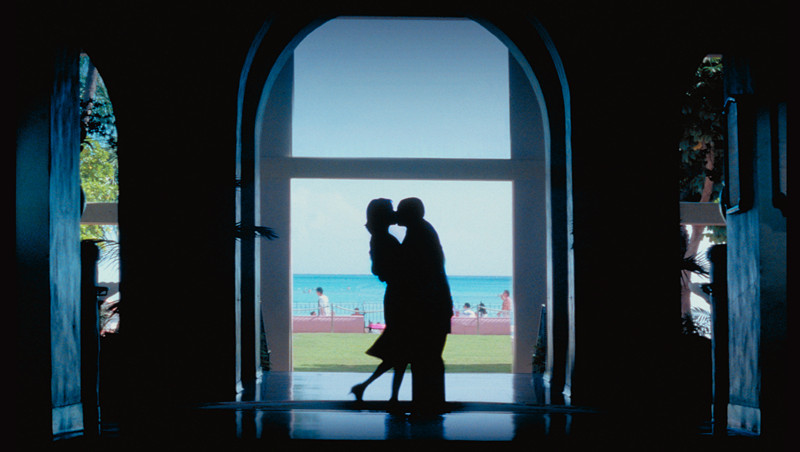
When reading the title of this list , some of you are probably thinking :”What? Really? What kind of list is this?”.So please, allow me to explain: It feels like the average length of films nowadays is getting longer for no real good reason. While it used to be an hour and a half, that was the average film length by now we are really moving more towards the two hour benchmark.
While this is no problem in itself, often you can really feel such lengths in modern blockbusters and also arthouse films. Sometimes there is nothing more fun then popping in a film, thats about 90 minutes long and then afterwards be amazed at how much some director can do with that runtime (often more than with longer films).
So why longer than 90 minutes then? Honestly it just seemed like an interesting idea. There are quite some lists that cover the 90 minute or shorter length, which all have great films on them, but therefore have to omit some great films. There are some wonderful films that are only about 5 minutes longer than that runtime, but miss such lists celebrating a sort of brevity in film and that just feels unfair. So here are some films that deserve to be championed:
1. The Taste Of Cherry (Abbas Kiarostami, 1997)
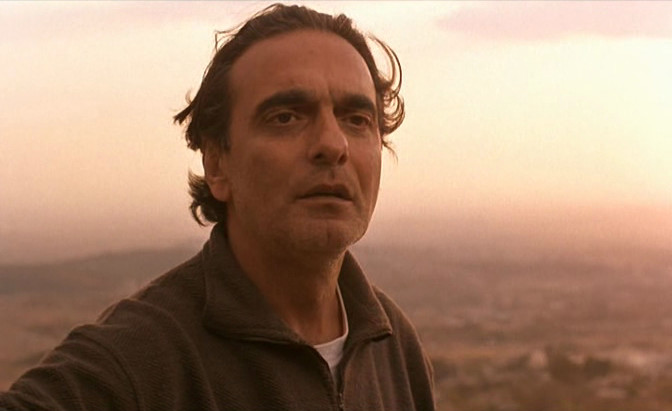
The passing of Abbas Kiarostami earlier this year was one of cinema’s biggest tragedies in recent memory (akin to Jacques Rivette and Chantal Akerman’s death).
Yet Abbas Kiarostami is certainly a man, whose work will remain and stand the test of time. Starting out in the 1970s and making films up to 2010, his films are hard to pin down. He has always been somebody to blur the line between fact and fiction (see 1990s “Close Up”) and embraced technical innovations quickly.
In the 1990s he finally rose to fame and won the Palme d’Or in 1996 with “The Taste Of Cherry”. The film is about a man who wants to commit suicide and drives around looking for somebody who will close his grave afterwards if his suicide attempt is successful.
With a narrative that simple , Kiarostami manages to make a poetic film, constructed of long shots of a car driving through beautiful lonely landscapes and long conversations that show us the philosophy of the characters. It’s thoughtful, beautiful and a necessary reminder of why we mustn’t forget Kiarostami.
2. The Umbrellas Of Cherbourg (Jacques Demy, 1964)
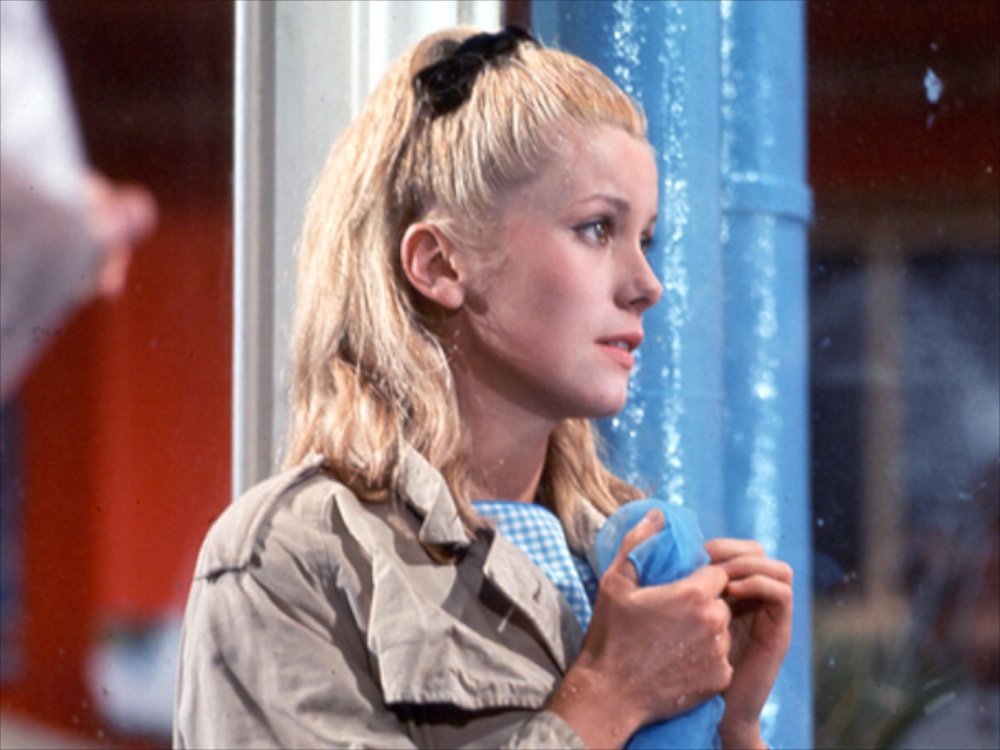
Often in art there is a fear of kitsch. The word itself has a rather negative connotation and films that tug our heartstrings and reduce us to tears are usually expected to be bleak and introspective to count into a certain category of arthouse film. “The Umbrellas Of Cherbourg” is bright, colorful, unapologetically schmaltzy and a musical!
Yet it is also a spectacularly heartfelt film that is a loving tribute to Hollywood musicals. Jacques Demy’s story about a young couple who are separated by the war in Algeria is heartbreaking. A young Catherine Denueve in her breakout performance shines in the films lead, yet in the end the real star probably is Michel Legrand.
The legendary composer, who worked closely with Demy up to his death, fills the entire film with music and unforgettable melodies. This is the most famous of Demy’s film and maybe also his best, and that says quite something in a filmography that is filled with joy and beauty.
3. A Nos Amours (Maurice Pialat, 1983)
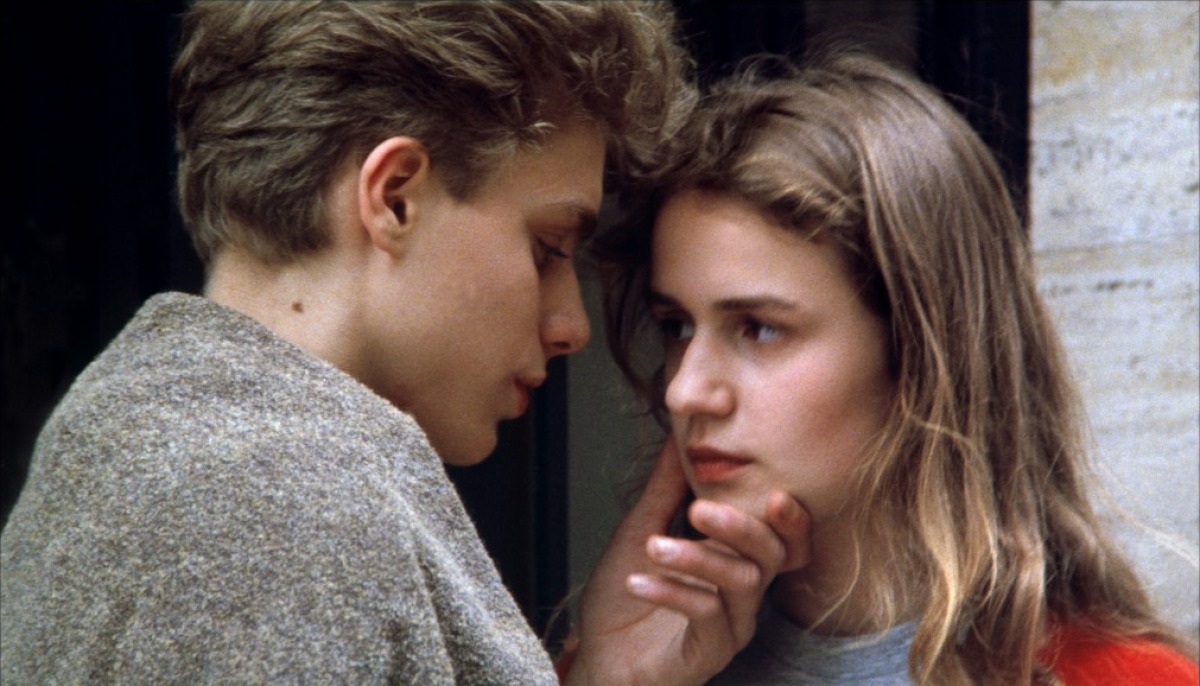
Whatever happened to Maurice Pialat? Maybe it is the fact that he started directing in the 1970s in France, right after the French New Wave, maybe it’s his unapologetic personality, but for some terribly unjust reason he isn’t heralded as one of the greatest directors France has ever produced.
Pialat was especially gifted in bringing emotionally harrowing and realistic stories to the screen, about very human conflicts in family and love. Yet he also made very poetic films, that were even very calm sometimes (look no further his his wonderful film about Vincent Van Gogh).
“A Nos Amours” is a strong film about the sexual awakening of a teenage girl, who tries to escape the tense climate at home. After her father leaves, her family turns even more towards her. The film lives from its splendid acting and the somewhat eccentric, yet also delicately drawn characters. It’S a film, that (like it’s director) deserves to be widely known and celebrated.
4. Aguirre, The Wrath Of God (Werner Herzog, 1972)
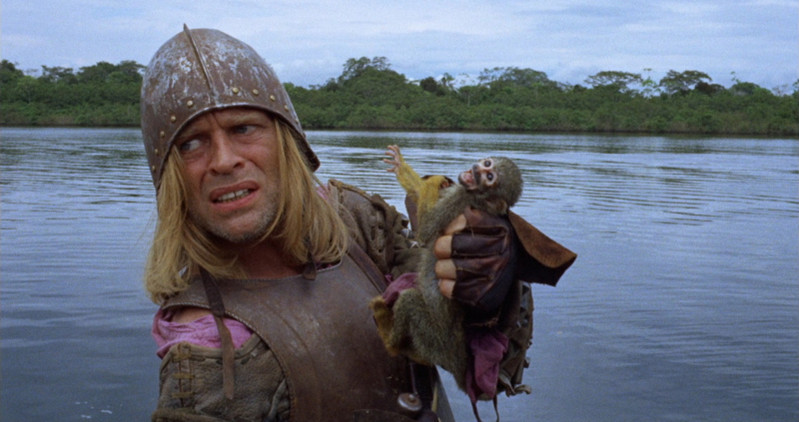
Werner Herzog is right now at a height of popularity ,he’s never had before. For one reason or another, pop culture is embracing the legendary German director, offering him speaking roles in shows as “The Simpsons” or “Rick and Morty”, a supporting turn in “Jack Reacher” and he has even appeared on talk shows.
Yet it seems, that this celebrity isn’t shining too much light on the actual reason he rose to fame: his films. Werner Herzog has been doing with documentaries and features for decades. Sometimes he blurs the line between the two , shooting fiction but actually demanding reality (he let a boat be pulled over a hill for “Fitzcarraldo”). The film that made him famous though is 1972s “Aguirre, The Wrath Of God”.
It features a grand performance by Klaus Kinski as insane conquistador, who tries to find a big treasure and goes mad on the trip. The film is filled with surreal dark humor and incredible views. It’s a sight to behold and a movie, that really mustn’t be described ,but watched instead.
5. Beau Travail (Claire Denis, 1999)
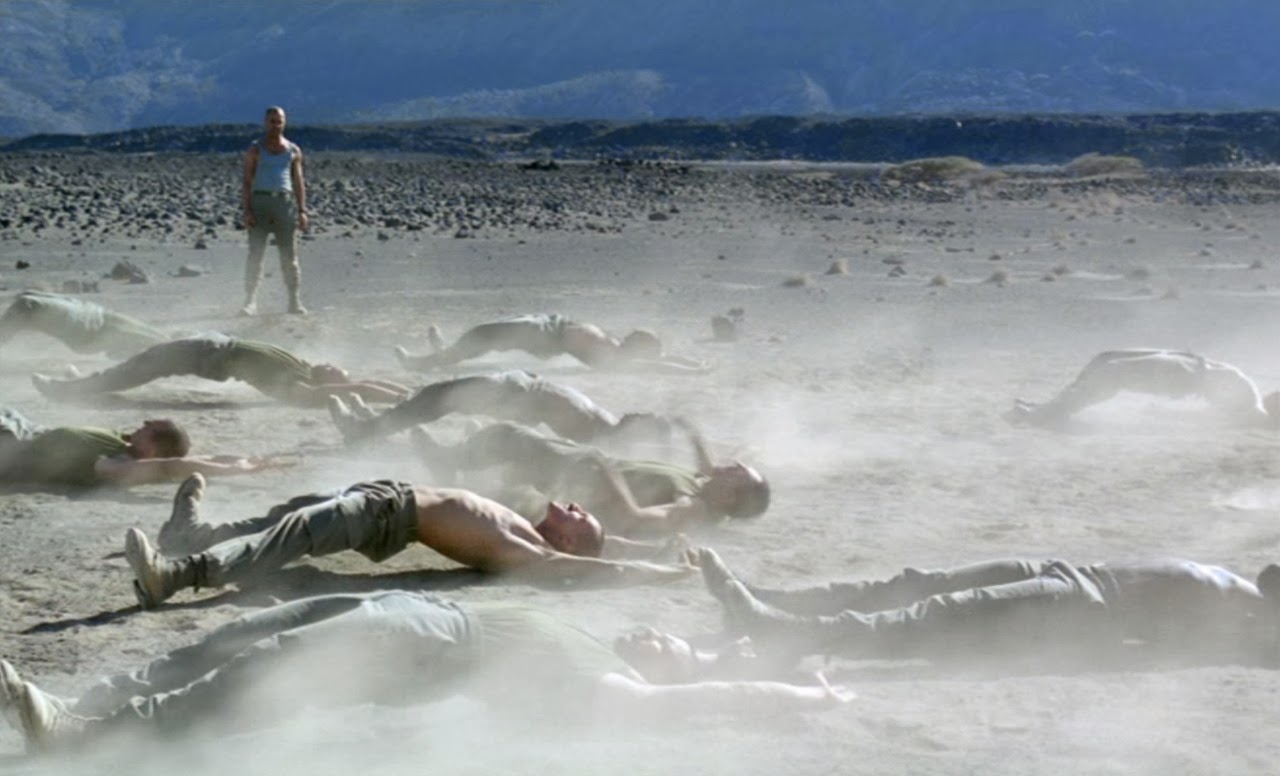
Beau Travail is a film, that remains in the mind long after viewing it. Years after seeing it some elements of the film come back to the mind of the viewer: Benjamin Britten’s Billy Budd, which accompanies lots of the film, the images of the desert and the sea, which fill the screen in an impressive scope and with vivid color and Denis Lavant. The great french actor gives a wonderful performance and closes the film with one of the greatest credit sequences ever put to film.
The film itself is about french soldiers stationed in Djibouti. Most of the film follows them training or socializing. In the midst of this Denis sets a story of jealousy and betrayal with strong homoerotic undertones. The emotions of the film are enforced by the music and the imagery and the film lingers in memories as something like an epic even.
6. Moonrise Kingdom (Wes Anderson, 2012)
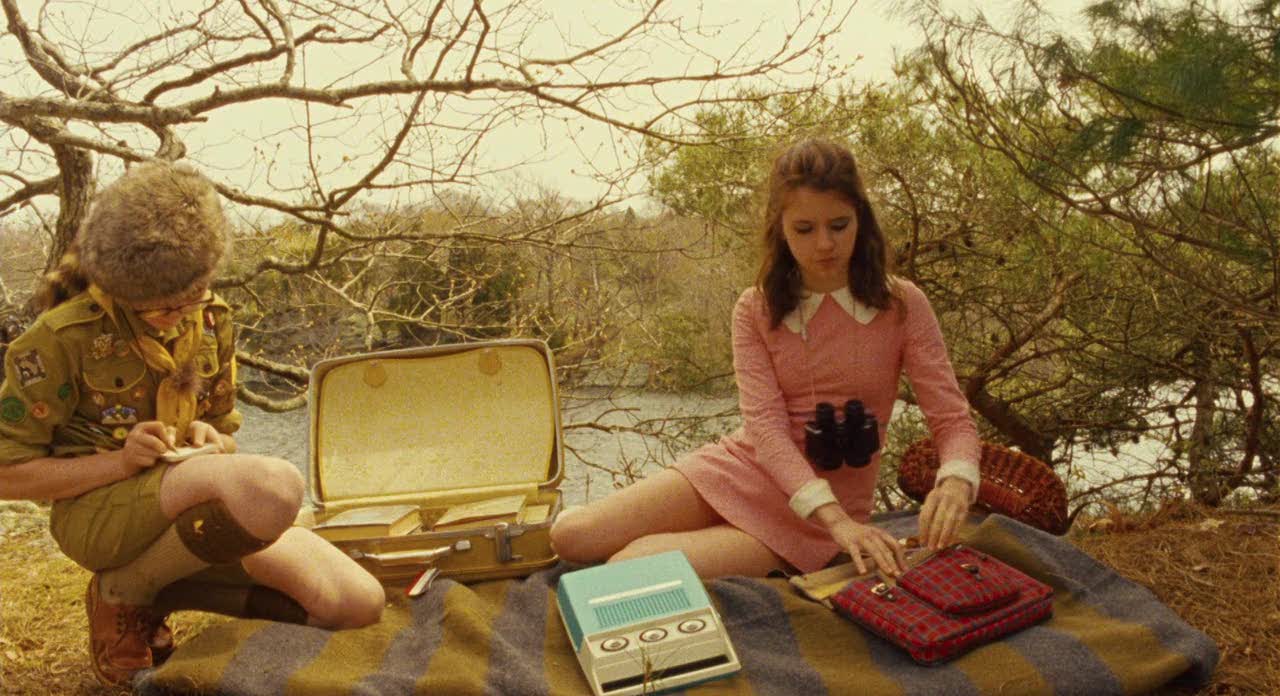
Wes Anderson’s Moonrise Kingdom even seems somewhat odd in his own filmography. The film is shot and acted in his usual aesthetic, but emotionally seems somewhat more mature then his films before it.
The story is about two 12 year old children, who fall in love and decide to run away from home on New England Island. Soon not only their parents, but also a police man, a scoutmaster and pretty much the entire island are searching for them.
The film is set in the 1960s which gives Anderson a good reason to use a certain aesthetic and music. He works with a yellow and brown warm color palette. Working with the simple device of making the child characters seem more like adults and the adults more like children Anderson achieves quite much more than expected.
The adult characters are all in one way or another tragic and lonely, and Anderson gets great performances from Frances McDormand, Bill Murray, Edward Norton and Bruce Willis. Yet the children more than hold their own and give fantastic performances too. The film is sweet and funny, yet Anderson achieves a more melancholic and nostalgic atmosphere than usually and finds an emotional resonance, that was a big step forward in his career.
7. Monty Python And The Holy Grail (Terry Gilliam & Terry Jones, 1975)
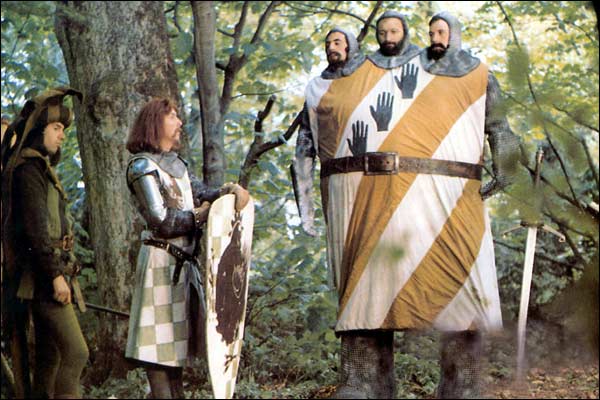
“Monty Python and the Holy Grail” is simply put one of the funniest films ever made. The plot is quite simple and basically retells stories about King Arthur. It wouldn’t make sense to say much more, because otherwise I’d probably just dig into the jokes and spoil them for viewers who aren’t familiar with the film yet. So what to say? If anyone who reads this still isn’t familiar with Monty Python’s humor there is really only one option: go on Youtube and watch some of their sketches.
If you like them, go on and grab “Monty Python and the Holy Grail” and prepare to laugh like you’Ve never laughed at any film before. If even the trailer to a film is funnier than most comedies out there, then it shouldn’t be a surprise, that the film itself is so damn funny.
8. Dr. Strangelove (Stanley Kubrick, 1964)

Stanley Kubrick is often associated with words like “cold”, “serious” and “emotionally detached”. And watching his films it is obvious where those attributions come from. Yet too often they are also used as criticism to make Kubrick seem like an almost inhuman perfectionist. “Dr. Strangelove” proves that an ironic distance doesn’t always mean that a film is serious.
Kubrick here adapts “Red Alert” – a thriller novel about the nuclear conflict between the Soviet union and the USA. Yet Kubrick decided to ditch all thinner elements and instead transformed the subject matter into a biting satire.
The film features some hilarious improvised performances, most notably Peter Sellers, who was maybe never better. He plays three roles here: a British officer, the president of the United States and Dr. Strangelove, a mad scientist and former Nazi. The film is about as mad, as it sounds from the description here and the humor is as funny as it is terrifying. Never has war been funnier.